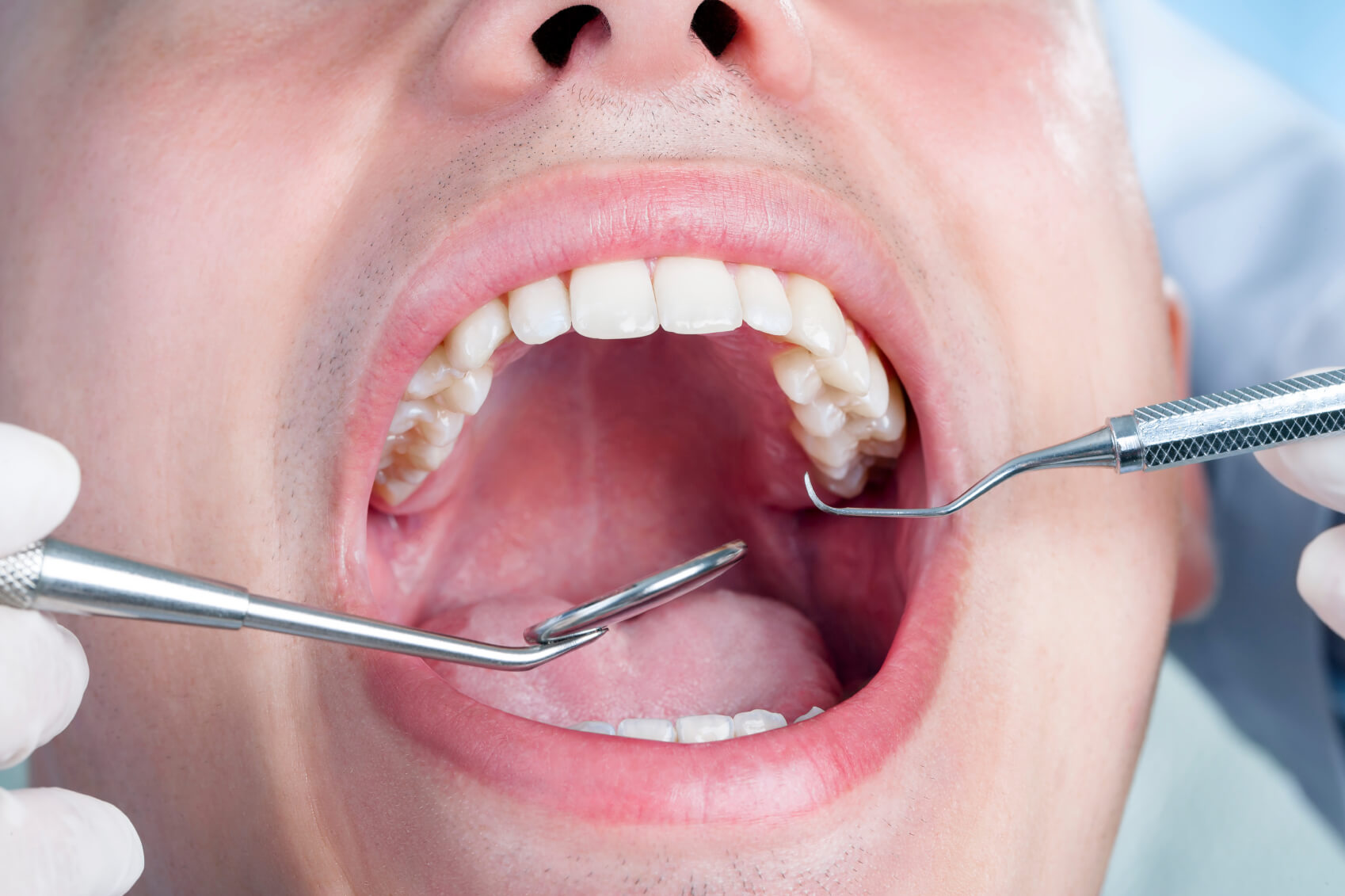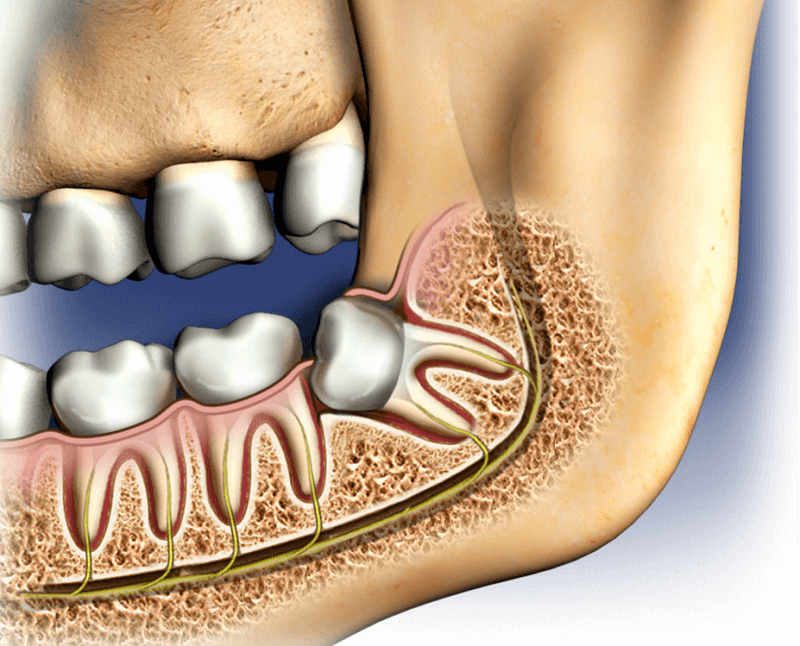
What are wisdom teeth?
Wisdom teeth are the teeth at the back of your mouth (the third molar teeth). They tend to come through (erupt) in the late teens or twenties. Some wisdom teeth do not come through fully (partly erupt) and get stuck (or impacted) against nearby teeth or bone. This often leaves a flap of gum over your tooth. Others grow too long (over erupt).
A wisdom tooth may need to be removed for one or more of the following reasons.
- repeated or serious infection of the gum
- tooth decay
- a wisdom tooth can grow out too far and damage the cheek or gum
- you may need an operation to move your jaw forwards or backwards
- your tooth may be in a position that makes it difficult to clean properly
- an orthodontist may need to make space to move other teeth backwards
- you may have a cyst near or around your tooth, or other jaw problems
- your tooth may be in the line of a jaw fracture

Are there any alternatives to removing a wisdom tooth?
Simple painkillers such as paracetamol can help control mild pain caused by wisdom teeth.
Antibiotics and rinsing with hot, salty water or chlorhexidine mouthwash can help when the area around the wisdom tooth is infected.
Removing the gum lying over your tooth (operculectomy) may be possible in certain cases if a wisdom tooth has partly erupted.
If the root of your tooth lies close to the nerve that supplies feeling to your lower lip, it is possible to remove just the crown of your tooth (coronectomy).
What will happen if I decide not to have the operation or the operation is delayed?
Your symptoms may get worse or return. There is a risk of getting a serious, life-threatening infection.
If you need to have your wisdom tooth removed before you can have corrective surgery or other orthodontic treatment, the surgery or treatment may not be possible. Impacted wisdom teeth do not cause crowded front teeth.
If you have increased pain, contact your dentist.
What does the procedure involve?
Most upper wisdom teeth can be removed easily under a local anaesthetic. Lower wisdom teeth can be more difficult to remove.
Removing a wisdom tooth can involve cutting the gum to uncover your tooth, removing bone around your tooth and dividing your tooth with a drill.
What complications can happen?
- pain
- bleeding
- swelling and bruising
- infection
- allergic reaction to the equipment, materials or medication
- dry socket, where the socket does not heal well
- retained roots, where it is not possible to remove the whole tooth
- damage to nearby teeth
- sinus problems
- broken jaw
- not being able to open your mouth fully (trismus) and jaw stiffness
- damage to nerves
- osteonecrosis, a rare condition where tissue in your jawbone starts to die
How soon will I recover?
You may need to take up to a week off work. You should be able to return to normal activities within a week.
Most people make a full recovery.
Summary
Wisdom teeth can sometimes cause serious problems.
Removing a wisdom tooth is usually a safe and effective way to prevent your symptoms from coming back.
